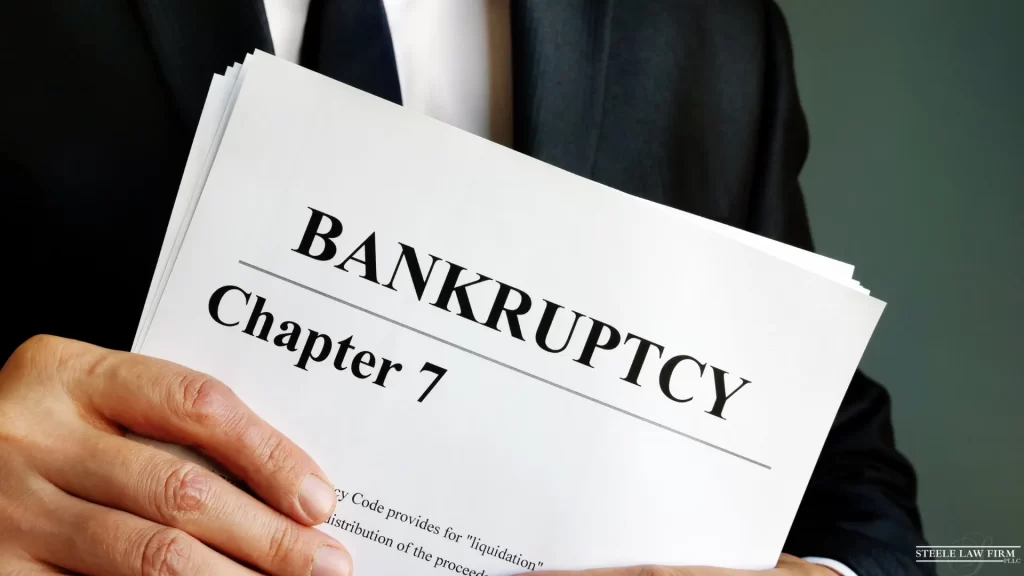Filing for bankruptcy can provide you with a fresh start, but it’s crucial that you handle the aftermath responsibly. So, what shouldn’t you do after a bankruptcy? Unfortunately, many people fail to comply with the terms of their bankruptcy plan after they’ve filed, which then leads to further complications. Understanding what to do after a successful bankruptcy filing is crucial to ensure you can enjoy the benefits of a fresh start.

After filing for bankruptcy, it is crucial to adopt smart financial habits to prevent falling into the same debts again. You need to make careful, informed decisions to ensure you can successfully rebuild your finances. The following are important steps to keep in mind after filing for bankruptcy:
Failing to adhere to the terms of your bankruptcy plan can result in serious legal consequences. For example, missing payments in a Chapter 13 bankruptcy can lead to the dismissal of your case, meaning you lose the protection of bankruptcy, and creditors can then resume their collection efforts. The debts you thought were wiped out could then become valid again in extreme circumstances.
Additionally, failing to comply with post-bankruptcy requirements, such as attending mandatory credit counseling or providing required documentation, can delay or even jeopardize your bankruptcy discharge.
For Chapter 7 bankruptcy filers, any attempt to conceal assets or intentionally mislead the court can lead to severe penalties, including fines or even criminal charges. In order to avoid these negative outcomes, it’s critical to follow your bankruptcy plan, stay in communication with your attorney, and ensure you meet all legal obligations after the filing.
A: Certain assets are protected from liquidation in bankruptcy due to exemptions. These include necessary clothing, household goods, tools of the trade, and retirement accounts like 401(k)s or IRAs. In some cases, a homestead exemption allows individuals to keep their primary residence, and some states offer exemptions for vehicles or personal injury settlements. Exemption laws vary by state, so it’s crucial to understand local regulations and talk to your lawyer.
A: Bankruptcy doesn’t discharge all debts. Child support and alimony obligations remain, as well as certain taxes, including back taxes owed to the IRS. Student loans are also difficult to discharge unless you can prove undue hardship. These obligations will continue despite filing for bankruptcy, and creditors may still pursue collection actions for these debts after the bankruptcy process is completed.
A: Filing for bankruptcy will impact your credit score initially, but the long-term benefits often far outweigh any temporary setbacks to your credit. Bankruptcy typically causes a significant drop in your credit score that can remain on your credit report for several years. However, the effects are typically temporary, and over time, you can rebuild your credit score by taking effective steps to establish positive financial habits.
A: Yes, you can keep certain assets when filing for bankruptcy because of the exemptions that are in place. These exemptions protect items like your home, vehicle, personal property, and retirement accounts. The exact assets you can keep in a bankruptcy depend on the type of bankruptcy you file (Chapter 7 or Chapter 13) and the exemption laws in your state. Non-exempt assets may be sold to pay creditors, but exempt property is typically retained.
A: In bankruptcy, non-exempt assets can be liquidated to pay off creditors. This may include luxury items, second homes, additional vehicles, or valuable collections like jewelry or art. If you file for Chapter 7 bankruptcy, the trustee can seize and sell non-exempt property to satisfy outstanding debts. Chapter 13 filers, however, may retain assets while repaying creditors through a structured repayment plan.
Going through bankruptcy is never easy. That’s why our firm is dedicated to providing compassionate, effective legal assistance for Texas residents dealing with financial challenges. We understand that each case is unique, which is why we provide advice and guidance tailored to your specific needs. Our experienced team can carefully review your situation, answer your questions, and guide you through the complexities of the bankruptcy process.
Take the first step toward financial relief by securing legal representation at the Steele Law Firm, PLLC. We are here to support you at every stage of the bankruptcy process, providing legal solutions that are focused on securing your goals. Contact our legal team today to schedule a consultation and begin building a financially secure future.




